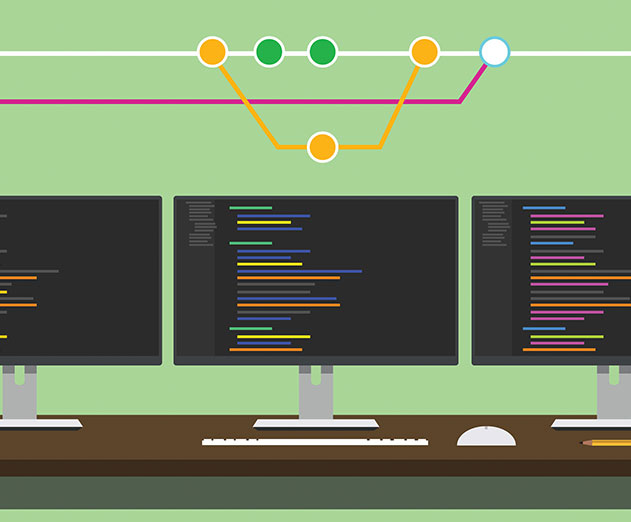Enterprise
GitLab releases version 10 and pushes DevOps
Thursday, September 28, 2017

|
Richard Harris |
DevOps code repository tool, GitHub, has announced their version 10 platform update.
GitLab has announced the release of GitLab 10.0 providing modern developers additional capabilities to fully embrace the benefits of DevOps, specifically continuous integration and deployment, and Kubernetes based application development. Built for the enterprise, v10.0 delivers on input from their customers, as well as joint development from the growing community of over 1,800 global contributors.
- Faster time to value: GitLab reduces the amount of time developers must spend on tooling, freeing them to focus on software development. The addition of Auto DevOps brings best practices to your project by automatically configuring software development lifecycles by default, providing out-of-the box templates to automatically enable and configure build, test, code quality, review apps, deploy, and monitoring.
- Increased productivity: Refreshed User Interface providing easier navigation, as well as new testing and monitoring capabilities. Productivity features used to reduce cycle time include enhanced subgroups, deploy boards and Prometheus, the ability to store files in object repository, and augmented integration support for both Slack as well as JIRA.
- Expanded Kubernetes capabilities: GitLab CI/CD makes deploying to Kubernetes a seamless process by offering a quick way to configure, deploy, and monitor applications inside Kubernetes, whether GitLab is installed inside or outside the cluster.
- Greater collaboration with group-level issue boards: Enabling teams working across multiple projects, such as when adopting a microservices architecture, group-level issue boards allow you to manage issues across all projects in a single group, in one view. Lists, labels, and milestones are all managed at the group-level in a group-level board, allowing you to focus on the group abstraction at this level.
“We are thrilled to deliver a secure, feature-rich version 10.0, in addition to partnering alongside organizations helping to further GitLab’s commitment to making DevOps best practices easily accessible,” said Sid Sijbrandij, CEO and co-founder at GitLab “Running Auto DevOps with Kubernetes and using GitLab's CI/CD capabilities provides the simplest, most efficient way to automate a secure and flexible continuous delivery pipeline.”
Key Features
- Faster time to value: GitLab reduces the amount of time developers must spend on tooling, freeing them to focus on software development. The addition of Auto DevOps brings best practices to your project by automatically configuring software development lifecycles by default, providing out-of-the box templates to automatically enable and configure build, test, code quality, review apps, deploy, and monitoring.
- Increased productivity: Refreshed User Interface providing easier navigation, as well as new testing and monitoring capabilities. Productivity features used to reduce cycle time include enhanced subgroups, deploy boards and Prometheus, the ability to store files in object repository, and augmented integration support for both Slack as well as JIRA.
- Expanded Kubernetes capabilities: GitLab CI/CD makes deploying to Kubernetes a seamless process by offering a quick way to configure, deploy, and monitor applications inside Kubernetes, whether GitLab is installed inside or outside the cluster.
- Greater collaboration with group-level issue boards: Enabling teams working across multiple projects, such as when adopting a microservices architecture, group-level issue boards allow you to manage issues across all projects in a single group, in one view. Lists, labels, and milestones are all managed at the group-level in a group-level board, allowing you to focus on the group abstraction at this level.
“We are thrilled to deliver a secure, feature-rich version 10.0, in addition to partnering alongside organizations helping to further GitLab’s commitment to making DevOps best practices easily accessible,” said Sid Sijbrandij, CEO and co-founder at GitLab “Running Auto DevOps with Kubernetes and using GitLab's CI/CD capabilities provides the simplest, most efficient way to automate a secure and flexible continuous delivery pipeline.”

Become a subscriber of App Developer Magazine for just $5.99 a month and take advantage of all these perks.
MEMBERS GET ACCESS TO
- - Exclusive content from leaders in the industry
- - Q&A articles from industry leaders
- - Tips and tricks from the most successful developers weekly
- - Monthly issues, including all 90+ back-issues since 2012
- - Event discounts and early-bird signups
- - Gain insight from top achievers in the app store
- - Learn what tools to use, what SDK's to use, and more
Subscribe here









